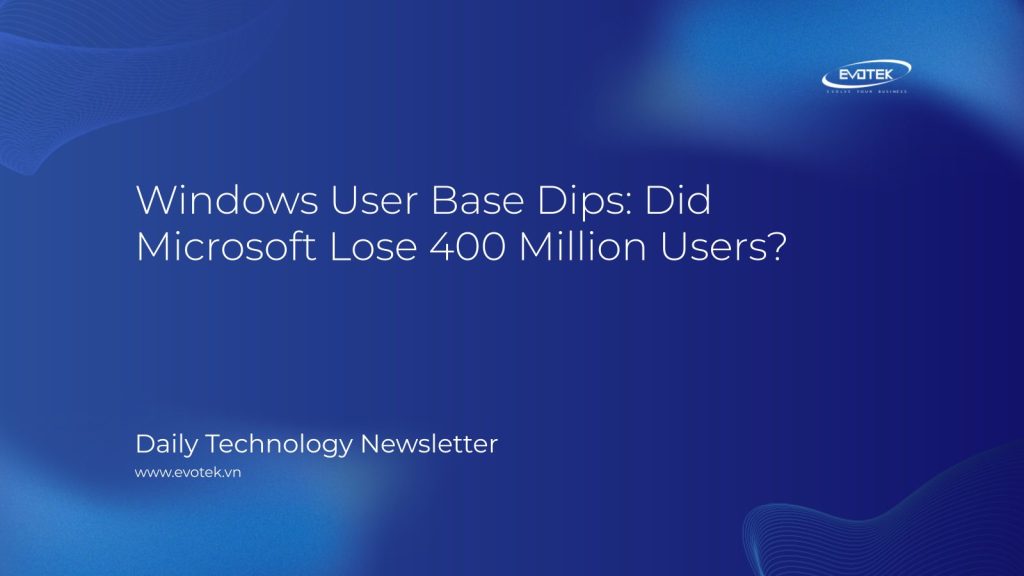Recent data suggests a potential decline in Windows users, raising questions about the operating system’s dominance in a mobile-first world.
Microsoft’s Numbers Tell a Story
While Microsoft’s Yusuf Mehdi boasted over a billion active Windows devices, a closer look at past reports paints a different picture. ZDNET highlighted that Microsoft’s 2022 annual report cited 1.4 billion devices running Windows 10 or 11. This discrepancy hints at a possible loss of around 400 million users in recent years.
Is this why Microsoft is pushing so hard for Windows 11 upgrades? The company likely wants users to stay within the Windows ecosystem, either by upgrading existing systems or purchasing new, compatible PCs.
Beyond the Apple Factor
While macOS and Apple Silicon MacBooks pose a competitive threat, attributing the entire decline to Apple is inaccurate. Mac sales themselves have reportedly been decreasing, suggesting a broader shift in user behavior.
The real culprit? The rise of powerful smartphones and tablets. For many, these devices now fulfill basic computing needs, reducing reliance on traditional PCs.
The Shifting PC Landscape
The primary consumer markets for Windows PCs are now largely gamers and professionals requiring specialized Windows-only software. The pandemic briefly boosted PC sales, but the long-term trend suggests a continued migration towards mobile devices.
What About the End of Windows 10 Support?
The approaching end-of-life for Windows 10 could drive corporate PC upgrades as businesses prioritize security updates. However, individual consumers might not be as motivated to switch. Many may continue using their Windows 10 machines without updates, accepting potential security risks.
Furthermore, attractive alternatives exist. The Apple Silicon MacBook Air offers compelling value, especially with its impressive battery life. Budget-conscious consumers can also find numerous Chromebook options. The growing familiarity with Chromebooks in education could further influence future purchasing decisions, potentially favoring Google over Microsoft.
The Rise of Web-Based Alternatives
Historically, the Microsoft Office suite and the availability of Windows-exclusive software cemented Windows’ dominance. However, the rise of free, web-based alternatives like Google Docs weakens this advantage. Many users now find that these alternatives adequately meet their needs, reducing the incentive to stick with Windows.
Will Microsoft adapt and innovate to retain its user base? Only time will tell.

 日本語
日本語 한국어
한국어 Tiếng Việt
Tiếng Việt 简体中文
简体中文